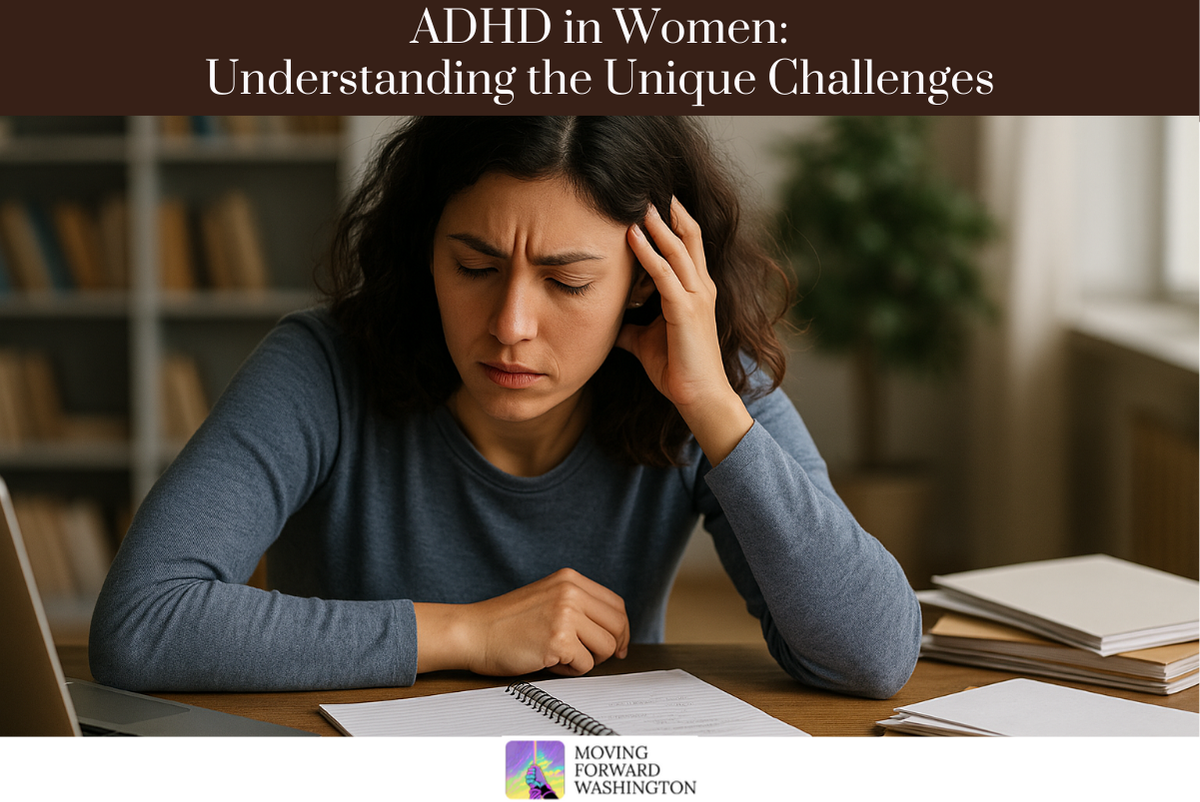Attention-Deficit/Hyperactivity Disorder (ADHD) is often misunderstood as a condition that primarily affects children—especially boys. However, many women struggle with ADHD throughout their lives, often without a proper diagnosis until adulthood. Because the symptoms of ADHD in women may present differently than in men, these challenges are frequently overlooked or misattributed to stress, anxiety, or depression.
How ADHD Shows Up in Women
Women with ADHD often experience:
- Inattention and distractibility – Difficulty staying organized, following through on tasks, or managing daily responsibilities.
- Emotional regulation struggles – Heightened sensitivity, frequent overwhelm, or rapid mood shifts.
- Internalized symptoms – While men may display more hyperactivity, women often turn their struggles inward, leading to self-doubt, shame, and anxiety.
- Masking behaviors – Many women become adept at hiding symptoms, appearing “put together” while silently battling exhaustion and frustration.
The Impact of Undiagnosed ADHD
When ADHD goes unrecognized, women may feel like they are constantly falling behind despite their efforts. This can contribute to chronic stress, relationship challenges, underperformance at work, and increased risk of depression or anxiety.
Getting a proper diagnosis can be life-changing. With support, therapy, and sometimes medication, women with ADHD can learn strategies to harness their strengths and manage challenges more effectively.
Q&A: ADHD in Women
Q: Why is ADHD often missed in women?
A: Many diagnostic criteria were originally based on research in boys. Because women are less likely to show disruptive hyperactive behaviors, their symptoms may be dismissed or misdiagnosed as anxiety, depression, or stress.
Q: How does ADHD affect relationships and work?
A: Women with ADHD may struggle with time management, forgetfulness, or feeling disorganized. This can affect communication and follow-through in relationships, as well as productivity at work. However, with strategies and support, women with ADHD can thrive in both areas.
Q: Can ADHD symptoms change over time?
A: Yes. Hormonal shifts—such as puberty, pregnancy, and menopause—can impact ADHD symptoms. Many women report increased challenges with focus, memory, and emotional regulation during these transitions.
Q: What are some effective treatment options?
A: Treatment may include behavioral therapy, ADHD coaching, medication, mindfulness practices, and lifestyle adjustments such as exercise, structured routines, and sleep support. A personalized approach works best.
Q: How do I know if I should seek help?
A: If you often feel overwhelmed, disorganized, or unable to meet daily demands despite your best efforts, it may be worth speaking with a mental health professional experienced in diagnosing ADHD in women.
Moving Forward Washington PLLC
At Moving Forward Washington PLLC, we understand the unique ways ADHD affects women. Our compassionate team provides thorough evaluations, personalized treatment plans, and ongoing support to help you move forward with confidence and clarity.
📍 Address: 1721 Hewitt Avenue, Suite 506, Everett, WA, 98201
📞 Phone: (425) 407-2771
🌐 Website: movingforwardwashington.com

